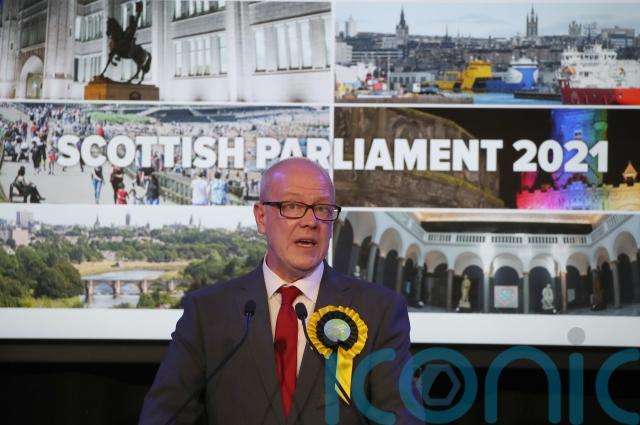
The scrapping of non-residential care charges in Scotland is a matter of “political will”, Scottish Labour’s deputy leader has said.
Leading a debate on the issue in Holyrood, Jackie Baillie said reserves for local health bodies in the past year have risen “exponentially”, and could be used to cover the scrapping of the charges levied against those who receive care in their own homes.
The SNP featured the same policy in its 2021 election manifesto, with minister Kevin Stewart telling MSPs during the debate on Wednesday they still planned to do so within the next year, but would need to introduce legislation.
“There is absolutely nothing standing in the way of the SNP ending charging right now,” she said.
“It doesn’t depend on the national care service, charging doesn’t even get mentioned in the Bill at all, it depends entirely on political will and resources.”
She added: “I say to the minister, no more twiddling your thumbs.
“No more spin and distraction, get on with it and do it now, because those needing care are desperate.
“The cost-of-living crisis demands you act now.”
South Lanarkshire Health and Social Care Partnership, Ms Baillie said, currently has £85 million in its reserves, while West Dunbartonshire has £32 million, with the cost of ending the charges £2 million and £1.5 million respectively.
Later in the debate, however, Health Secretary Humza Yousaf said the use of reserves would not provide funding for the required recurring spend, adding that the majority of reserves are earmarked for other things.
He also said that five integration joint boards have no reserves, while 23 have less than 2% of their available funding in reserve.
Although Ms Baillie said the remaining funding which was not ring-fenced by local bodies would be enough to cover the scrapping of charges.
But Mr Stewart drew a comparison between Ms Baillie’s proposal and her reaction to the publication of the National Care Service Bill this week – which she described as a “power grab”.
“I find it a little bit bizarre that yesterday Ms Baillie was talking about a power grab and centralised control in terms of a National Care Service, but today, she wants us to compel integration joint boards, health and social care partnerships and councils to do this now,” he said.

“You cannot have it all ways Ms Baillie – your position on Tuesday is somewhat different from your position today.”
He also said that the Scottish Government was “absolutely committed” to ending the charges.
For the charges to be lifted in a “uniform, fair and consistent way” nationally, there would have to be legislation introduced.
Subscribe or register today to discover more from DonegalLive.ie
Buy the e-paper of the Donegal Democrat, Donegal People's Press, Donegal Post and Inish Times here for instant access to Donegal's premier news titles.
Keep up with the latest news from Donegal with our daily newsletter featuring the most important stories of the day delivered to your inbox every evening at 5pm.